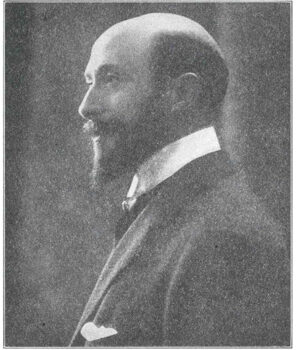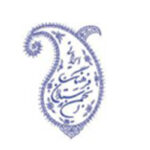Book review: Hippolyte Dreyfus-Barney – premier bahá’í français
A recent book represents a contribution to original French Bahá’í literature.
In 2021, the Librairie bahá’íe in Paris published a short book called Hippolyte Dreyfus-Barney – premier bahá’í français about Hippolyte Dreyfus-Barney (1873-1928), one of the 19 Disciples of ‘Abdu’l-Bahá[i] and the first French Bahá’í. Written by Yann Ballanger in collaboration with Parivash Ardeï Amini, the book outlines Mr. Dreyfus-Barney’s services to the Cause.
Hippolyte Dreyfus was born in Paris to a prominent Jewish family. He was afforded many opportunities in life and became a lawyer and intellectual. At the time he first heard about the Bahá’í Faith, he did not have a strong attachment to any religion. When he noticed a striking transformation in his friend, Edith Sanderson, he wanted to find out what had caused this change. She told him it was her recent friendship with May Ellis Bolles (later May Maxwell), who had returned from Palestine where she had met ‘Abdu’l-Bahá. Dreyfus-Barney later met May Bolles, listened attentively to her talk about the Faith, and soon after, in 1901, wrote to ‘Abdu’l-Bahá to declare his faith.
Among other events, the book outlines Mr. Dreyfus-Barney’s extensive travels: he visited ‘Abdu’l-Bahá in Palestine on seven occasions, and accompanied Him through France, England, and North America. At the Master’s suggestion, Dreyfus-Barney travelled alongside Laura Barney (whom he later married) and Emmanuelle Lachenay, to Persia, Japan, China and parts of Southeast Asia. The book also details Dreyfus-Barney’s translation work, as he provisionally translated from the original Persian and Arabic several books of the Writings of Bahá’u’lláh, including the Kitáb-i-Íqan, The Hidden Words, as well as Epistle to the Son of the Wolf into French. He also helped translate Some Answered Questions, which is based on a series of interviews between ‘Abdu’l-Bahá and Laura Dreyfus-Barney.
The book also brings attention to the bold lectures Dreyfus-Barney delivered at various gatherings, the books he wrote about the Faith, the diplomatic missions he undertook on behalf of his co-religionists—including meeting the Shah of Persia[ii] in Paris—the friendships he cultivated with Orientalists such as E. G. Browne and A. L. M. Nicolas, and his work defending the legal rights of Bahá’ís in his capacity as a lawyer.
The book ends with a piece written by May Maxwell that was published in Star of the West after his passing:
As a profound scholar, a loved and trusted friend among his associates, as a man of deep sympathies, intellectual attainment and sound judgment, he was well prepared to grasp and accept the sublime teachings of Bahá’u’lláh and become their greatest advocate and exponent in France…His presentation of the Cause among all peoples enhanced its honor and prestige, and among the friends he was invariably a unifying influence, welding them in those deeper bonds of brotherly love which is the essence of the Bahá’í faith…Like many Bahá’ís he combined a rare sweetness of nature with great firmness and strength, and his criterion for estimating the true worth and status of his fellow Bahá’ís is the standard for all. He said that he considered every soul in their relation to God and to the cause, never in their relation to him.[iii]
The well-written and abundantly annotated book opens a window into the life of a person whose name is familiar but about whom not much is known. It draws on documents in the French and American National Archives and adds a befitting subject to original Bahá’í French literature. We may know about Mr. Dreyfus-Barney through our reading of the biography written by his wife,[iv] the letter of the Guardian to the Bahá’í world following Mr. Dreyfus-Barney’s passing[v], or through the brief dispersed details in publications of Star of the West; however, this book serves to provide a central resource about his life—a life that the Guardian says “will be gratefully remembered by future generations whom as the days go by, will better estimate the abiding value of the responsibilities he shouldered for the introduction and consolidation of the Bahá’í Faith in the Western world.”[vi]
Overall, the book does well to provide some insight into the accomplishments of a life that was cut short at age 55. It shows in a tangible way that the Revelation of Bahá’u’lláh at its early stages had already transformed the lives of people throughout the world—that His Cause was not an ideal, but rather a nascent reality. For Mr. Dreyfus-Barney personally, in the early decades of the 20th century, it meant that he had a real connection with other believers and sympathizers in many other countries, and felt it was his mission to help them draw closer to Bahá’u’lláh.
-Louis Brunet
[i] The Disciples of ‘Abdu’l-Bahá, also ‘Heralds of the Covenant’, were a group of 19 western Bahá’ís designated as such by Shoghi Effendi.
[ii] Moẓaffar-al-Dīn Shah (1853-1907)
[iii] Star of the West, vol. 20, p. 26
[iv] This biography can be accessed here: https://bahai-library.com/dreyfus-barney_biography_hippolyte_dreyfus-barney
[v] This letter can be accessed here: https://bahai.works/Bah%C3%A1%E2%80%99%C3%AD_World/Volume_3/Hippolyte_Dreyfus-Barney
[vi] The Bahá’í World, vol. III, p. 210.
Category: Features









